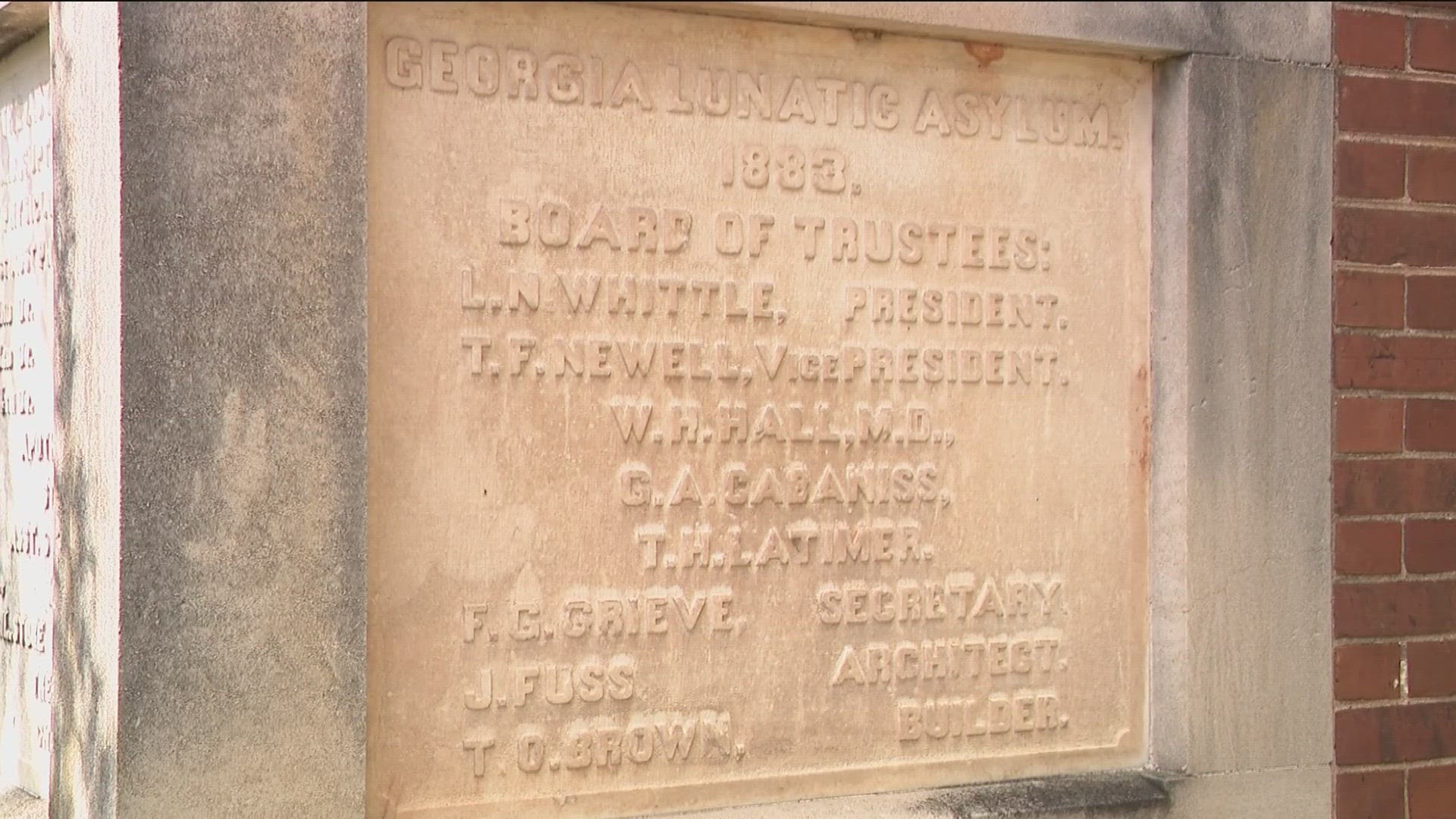MILLEDGEVILLE, Ga. — The state of Georgia is planning a massive demolition at the site of some of its darkest history; a sprawling mental hospital in Milledgeville which has been mostly vacant for years.
However, some with ties to the facility claim its haunted history is worth saving.
The decaying brick buildings are fenced off, condemned and have been uninhabitable for decades. They are what’s left of Central State Hospital, once known as the "Georgia Lunatic Asylum."
Thousands of Georgians, separated by race and gender, often spent lifetimes there – frequently against their will.
"You can see they haven’t even kept it up," said Edwin Atkins, whose great-grandmother Betty Stubbs Wilkinson was a patient in the 1890s. He said her estranged husband used some pull and had authorities commit her to the old asylum for most of her life.
"Was she really insane for all those years?" Atkins mused in an interview. "Which I doubt. There were a lot of people sent to the asylum mostly to get rid of them...mostly women."
Atkins has become an unofficial historian of the facility. A hospital-made film from the 1970s documents the last years of its heyday. Its since-closed museum displayed straitjackets and electroshock therapy tools – crude devices used to treat mental health conditions poorly understood in the mid-twentieth century.
"But they weren’t all crazy," Atkins said. "It was the warehousing, just throwing people in there until they died."
In a 2010 11Alive News story, a tour bus rolled through the facility – when part of the hospital, then called Central State, was still in use. Now that the facility has stopped treating patients, the state aims to tear down the massive, hulking empty buildings that ring a pecan grove. Gov. Brian Kemp signed the demolition order this summer.
But Atkins is convinced the pecan grove is the final resting place of countless forgotten mental health patients. "From all of my research from trustee reports, I’ve come up with 55,000 deaths. There certainly aren’t 55,000 graves," he said.
Atkins is asking the state to find a way to preserve the facades of the three massive empty hospital buildings it aims to demolish. The roofs of the buildings gave way decades ago, exposing the interiors to rainfall and decay.
"The bottom line is they want to sell the property for development and these buildings are in the way," Atkins said.
Before the demolition, the state is conducting what an official describes as a historic review of the property -- something Atkins describes as probably only delaying the inevitable.

